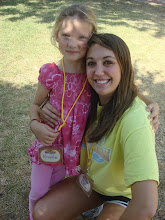In Warner’s The Wide, Wide World we can see the relationship between the parents and children to be very cut and dry. There is no way to miss out on the views from the 19th century on how parenting was to happen. In the part of Warner’s The Wide, Wide World, we see that the mother is the one that is to bring up the children. She works out of the home and is in charge of rearing the children. The father is nowhere to be found, and has no apparent relationship with or really cares for the child. The father shows his complete annoyance with his daughter, Ellen, and we see that Ellen does whatever is necessary to no bother her father. For example, before Ellen and her mother go shopping, we find her reluctant to go into the dining room until her father has completed his meal and moved on. I think that Ellen, despite her excitement for the day’s activities is partially afraid of her father. She does not have the relationship with him that she has with her mother. Also, when it is time for her to leave to go to her aunt’s house, Ellen is hugging her mom and sobbing over losing her mother. When her father comes up the stairs he is merely the bearer of bad news, and he barely even says goodbye to his only daughter.
In this story I do believe that the father is an exaggeration of how most would act with their children. I do agree with what is stated and shown about the mother. It is just natural for a mother to have the paternal instincts to care for the child and bring them up to be little ladies or gentlemen. I wonder if Ellen had been a boy then her father would have paid more attention to her? It works well with the story though for her father to ignore her, because then we see how important her parents are. I think Ellen respects her father, but feels neither love nor affection for him. I mean who could blame the girl. Her father completely ignores her and doesn’t even care that he is taking her mother away from her. I think Ellen doesn’t really expect much from her father, but expects the world from her mother. Showing us the true tie to the mother that the children of the 19th century had.
Wednesday, January 27, 2010
Wednesday, January 20, 2010
Constructions of Childhood
When observing childhood literature there are many different theories and ideas that are important to keep in mind when it comes to analyzing what is being said. One theory that can be gathered from “Children’s Literature for a New Nation” by McLeod is that children are always taught a moral lesson. You will tend to see such things as the good always end up with the better outcome, while the bad always receive harsh discipline in what happens. In McLeod’s work it is stated that “they were written to teach, and specifically, to teach morality.” It is plain as black and white. If we think back to simple stories we were told as children I guarantee you can think of at least on with some sort of a moral lesson.
A main idea can be found from Sanchez-Eppler’s work Dependent States: The Child’s Part in Nineteenth-Century American Culture is that the children are important to the society, thus yielding great control. I believe that is why children’s literature is taken so seriously and has such deep meanings. In Sanchez-Eppler’s work it says, “Children can simultaneously and seamlessly function as both objects and subjects of social control, since in their state of dependency it is precisely what they lack that makes them rhetorically efficacious.” They hold the future of the society.
Another thing to keep in mind is that there will be few details. This is done to keep the work able to be identified with many different cultures and areas. I think it is also done to keep the children’s focus on the moral that is the main goal to be learned. In McLeod’s work it says, “No doubt because their purposes were so selective, authors gave scant attention to the settings of their narratives.”
Keeping in mind that in that time period children were just being used to make adults. In Sanchez-Eppler’s work it says, “Children matter then not as selves, but as stages in the process of making an adult identity.” Children were dependent and so they were not considered an actual person.
One last thing to keep in mind is that all of these works are usually written by adults causing them to be written from the viewpoint of what is felt about what happens, not just told what happens. We see plenty of own thoughts on a subject just from the way an author writes his/her story. In McLeod’s work it backs this thought up, “What the fiction speaks of is not so much what happened in the period as what many quite representative middle-class Americans felt about what was happening.” When reading children’s literature there are many different things to keep in mind to make the understanding of what is really being said or taught.
A main idea can be found from Sanchez-Eppler’s work Dependent States: The Child’s Part in Nineteenth-Century American Culture is that the children are important to the society, thus yielding great control. I believe that is why children’s literature is taken so seriously and has such deep meanings. In Sanchez-Eppler’s work it says, “Children can simultaneously and seamlessly function as both objects and subjects of social control, since in their state of dependency it is precisely what they lack that makes them rhetorically efficacious.” They hold the future of the society.
Another thing to keep in mind is that there will be few details. This is done to keep the work able to be identified with many different cultures and areas. I think it is also done to keep the children’s focus on the moral that is the main goal to be learned. In McLeod’s work it says, “No doubt because their purposes were so selective, authors gave scant attention to the settings of their narratives.”
Keeping in mind that in that time period children were just being used to make adults. In Sanchez-Eppler’s work it says, “Children matter then not as selves, but as stages in the process of making an adult identity.” Children were dependent and so they were not considered an actual person.
One last thing to keep in mind is that all of these works are usually written by adults causing them to be written from the viewpoint of what is felt about what happens, not just told what happens. We see plenty of own thoughts on a subject just from the way an author writes his/her story. In McLeod’s work it backs this thought up, “What the fiction speaks of is not so much what happened in the period as what many quite representative middle-class Americans felt about what was happening.” When reading children’s literature there are many different things to keep in mind to make the understanding of what is really being said or taught.
Wednesday, January 13, 2010
An introduction
I am Effie Bates from the lovely Hill Country of South Texas. I was born in Raleigh, North Carolina, but by the age of nine months I was moved down to Kerrville, Texas. I am currently a first year student at TCU, but transfered in enough hours that technically this semester I could be considered a sophomore. I am a Movement Science Major with the hopes of becoming a physical therapist. I have a great passion for sports. I grew up on the soccer field and in the gym hitting a volleyball around. My father was very involved in my sports careers from coaching me when I was little in the local soccer leagues, to the advice before and after a game I would receive from him. I have been raised a Christian and am one by choice. I have also been raised hunting and fishing. I love the great outdoors and love to spend my free time there. I have grown up in a church down in Fredericksburg, Texas where my grandfather was the pastor. I actually found TCU through a girl who graduated from here that I went to church with. She basically convinced me that I would thrive better here than at Texas A&M which is where I was set on going since about birth. If I was made Chancellor of TCU, I do not believe I would have much to change. I would probably just implement some new traditions and make sure that TCU was well advertised to the high schools all over Texas and even all the other states. I feel a good teacher is someone who cares enough to be willing to help, but also makes the students learn how to do it themselves. A good student is one who strives for perfection but is not afraid of failure. Three things to know about me would be that I am a morning person and very optimistic, I am a Christian, and I am an athlete at heart but not an athlete for TCU. I am taking this course because yes it is required, but it sounded to me like the most interesting out of the literature courses. I hope to gain a further knowledge of how children were viewed back in the nineteenth century and how the authors tended to write. I read for my classes, but unfortunately am very busy outside of class so my outside reading is limited to my Bible. I primarily e-mail and text, I mean I am a teenager. I would say my blog shows I am very lighthearted by the light colors on my page. It shows that I have school spirit seeing as my profile picture is from the bowl game our football team just played in and I was fortunate enough to attend. I show my roots in my introduction and show that I am a true to heart Texas girl. In the class I hope to bring interesting discussions to the table and look at things in all different kinds of perceptions.
Subscribe to:
Posts (Atom)





